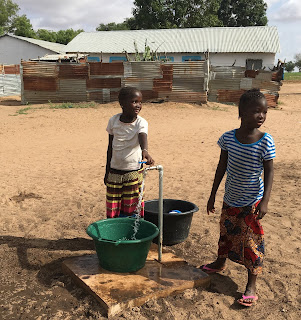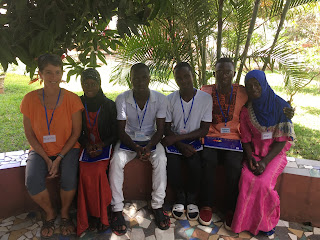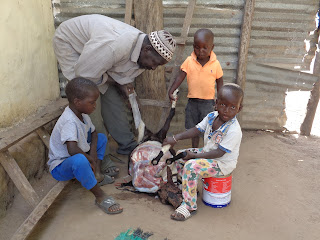Twists and Turns

For reasons I can't explain, I haven't been very good about blogging about my Peace Corps experiences in The Gambia. Sorry! But it feels like time for a quick update because a lot has happened/is happening now and I wanted to let my friends and followers know about my whereabouts. I decided on Feb 22 to resign from Peace Corps and come home to Colorado to be with and support my mother through her last phase of life. I arrived on Feb 28 and am staying with my sister and her husband in Longmont, CO. I also have a brother, sister-in-law and nephew living nearby in Erie. My mom had an apartment in an Independent Living facility nearby for the past three years. She was assigned to hospice care last fall due to cancer, with an estimated 3-6 months to live. I was able to come home to spend a couple great weeks with her last fall, before she started declining. And I was able to spend 2.5 weeks with her since my return in February. After celebrating her 92nd birthday last Friday, en



